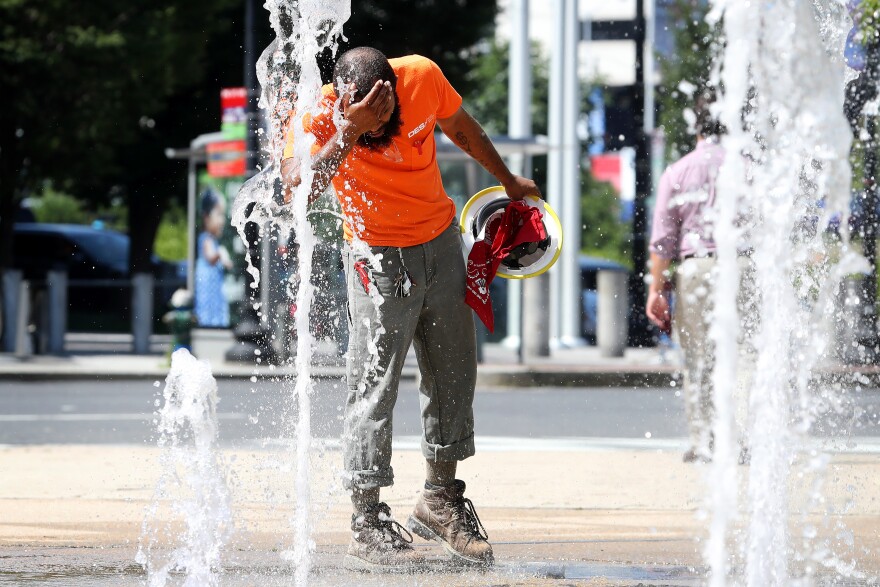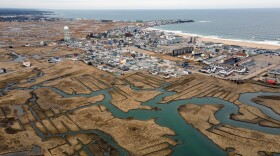High temperatures and humidity can make most people uncomfortable — and it can be deadly in some cases. More than 600 people in the United States are killed by extreme heat every year, according to the , although some researchers say the death toll from heat .
The to stay safe in extreme heat.
1. Drink plenty of nonalcoholic fluids.
"Drink plenty of water or non-alcoholic fluids," the weather service says. "Your body needs water to keep cool. Drink plenty of fluids even if you don't feel thirsty." And don't drink alcoholic beverages.
2. Stay in air conditioning if possible.
"Air conditioning in homes and other buildings markedly reduces danger from the heat," the weather service says. "If you cannot afford an air conditioner, spending some time each day (during hot weather) in an air conditioned environment affords some protection."
3. Stay out of the sun.
4. If you're in the sun, wear lightweight and loose-fitting clothing and hats and apply sunscreen.
"Lightweight, light-colored clothing reflects heat and sunlight, and helps your body maintain normal temperatures," the weather service says.
5. Reschedule strenuous activities for the early morning or late evening.
6. Call 911 if you or anyone around you may be suffering from heat stroke.
Learn more
5 Tips For Staying Safe And Cool In Extreme Heat

Check on friends and neighbors
The CDC identifies vulnerable groups to be especially mindful of when the temperature and humidity soar:
Athletes
Exercise during the early or later part of the day when temperatures are cooler than the high for the day. It’s particularly important to pace activities, starting out slower and intensifying training slowly during the workout.
People with chronic medical conditions
Conditions like heart disease, mental illness, poor blood circulation and obesity are risk factors for heat-related illness. Certain medications can also lower a person’s ability to stay hydrated and regulate their body temperature.
Heavy sweating can remove salt and minerals from your body. People with medical concerns should call their doctor about how to safely replace salt and minerals lost through sweating.
Infants and children
Never leave infants or children in a parked car, even if the windows are open. Caregivers may want to put keys or their phone near the child to help remember.
Make sure children drink enough fluids. Avoid sugary drinks — sorry, that Icee or Slurpee may contribute to dehydration.
Low-income households
Cooling centers are often set up in cities and towns across ���ϳԹ��� during hot weather. People are encouraged to try to find air conditioning during the hottest part of the day if it is not an option inside the home.
The CDC warns that fans will not prevent heat-related illness when temperatures are extremely hot.
Older adults
Older adults do not adjust as well as younger people to sudden changes in temperature, according to the CDC. In addition to drinking plenty of fluids and seeking air conditioning, older adults should consult their doctor about how to stay hydrated while taking any medications that may limit the amount of liquids a person drinks.
Outdoor workers
The CDC recommends that workers help . Acclimatization is a physiological adaptation that can help workers lower their core body temperature and heart rate, sweat more efficiently and stabilize circulation after repeated exposure to a hot environment.
Work should be done in the early morning or evening when possible.
Everyone is encouraged to stop all activities and rest in a cool area if they begin to feel faint or weak.
Sources: Centers for Disease Control and Prevention; National Weather Service; ���ϳԹ��� research





